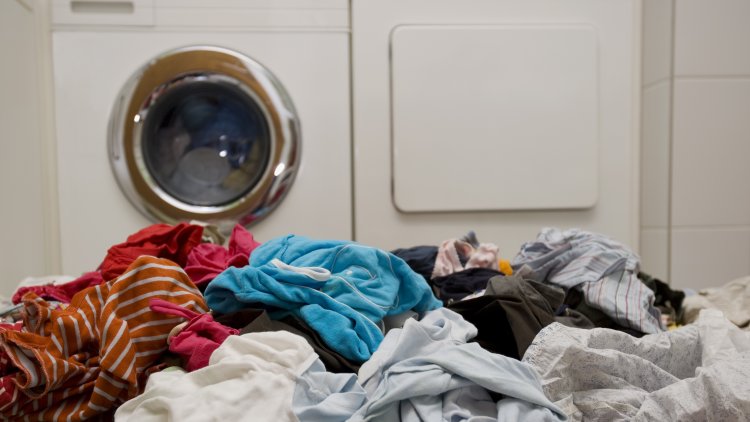How Humans Handle Housework
Minimizing gender disparities in house chores means reconsidering some deeply held societal truths.

This is an edition of The Wonder Reader, a newsletter in which our editors recommend a set of stories to spark your curiosity and fill you with delight. Sign up here to get it every Saturday morning.
In 2019, Sophie Knight reflected on the unusual way she and her husband tried to deal with the imbalance of time spent on home chores: He paid her for housework. “It made sense to us,” she wrote: “While our goal was to divide the work equally, I ended up doing much more because he worked in an office and I worked at home as a freelancer, using my breaks to cook, vacuum, and do laundry.”
Ultimately, the couple found that communicating about the imbalance and finding a compromise was more sustainable than the invoicing method. But it’s not easy to work through this sort of discrepancy. The straight couples who do so are fighting against an entire cultural history: “Caretaking is a central way that women perform their gender,” my colleague Annie Lowrey wrote recently. Getting to a more equal setup means reconsidering some deeply held societal truths. But on the other side of this effort might be a world where women feel content to put down the vacuum and say, “It’s clean enough.”
Today’s newsletter is a collection of stories on the gender gap in housework, as well as how the human mind thinks about chores and cleaning.
On Cleaning
My Husband Paid Me to Do Housework
By Sophie Knight
We wanted to address a systemic, gendered imbalance. It didn’t really work.
Put Down the Vacuum
By Annie Lowrey
Americans need to get off the tidiness treadmill.
Why People Wait 10 Days to Do Something That Takes 10 Minutes
By Amanda Mull
Chores are the worst.
Still Curious?
- Three theories for why you have no time: Better technology means higher expectations, and higher expectations create more work, Derek Thompson wrote in 2019.
- The myth that gets men out of doing chores: They’re just as good at recognizing messes as women—they just don’t feel the same pressure to clean them up, Joe Pinsker wrote in 2021.
Other Diversions
- Taylor Swift is a perfect example of how publishing is changing.
- The sense that most defines a culture
- The fairy tale we’ve been retelling for 125 years
P.S.
I recently asked readers to share a photo of something that sparks their sense of awe in the world. Joe Brennan, 73, sent this photo “taken at low tide in San Felipe Baja California.”
I’ll continue to feature your responses in the coming weeks.
— Isabel
What's Your Reaction?




















